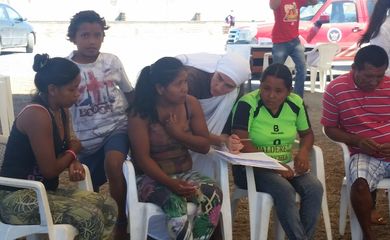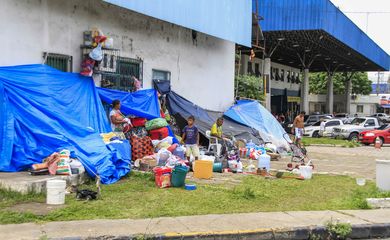Prosecutors and public defenders appeal against forced removal of Venezuelans




Refugee applications from Venezuelans quadrupled in two years in Brazil.
The Public Prosecution Service in Roraima, in northern Brazil, and the Office of the Public Defender filed an appeal this week against the transfer of around 400 Venezuelans from the streets of downtown Boa Vista (capital of the state of Roraima) to a gymnasium.
According to the public officials, on October 28 police officers and firemen “forced the immigrants living in the surroundings of Boa Vista's bus station to move to a shelter at the Tancredo Neves gymnasium. It was found that the social care workers were not involved in the operation, despite the fact that some of the targeted people were under conditions of extreme vulnerability.”
In the appeal, the Public Prosecution Service and the public defender's office claim the immigrants cannot be prevented from living on the streets and request that the government of Roraima “is forbidden to make new forced removals or to prevent Venezuelans from leaving the gymnasium.” According to the prosecutors and defenders, the Venezuelans reported the gymnasium is dirty, has no water supply and faces lack of food, even though there are children and sick aged people living in the place.
The prosecutors and defenders also ask that the Venezuelans be awarded $243 thousand in damages for nonpecuniary loss.
The government of Roraima released a statement declaring it sees the filing of the public-interest civil action with perplexity. The authorities claim the transfer was voluntary and happened after previous understanding endorsed by the Civil Defense.
According to the statement, the transfer involved eight secretariats and ensured care and shelter for 380 Venezuelans in a clean place, with access to water, sanitation and energy. The statement also says the permanence in the shelters is voluntary. According to the government, the Attorney's Office of the State of Roraima will adopt the appropriate legal measures as soon as it is officially notified.
*With information from Renata Martins, from Rádio Nacional de Brasília.
Translated by Mariana Branco




